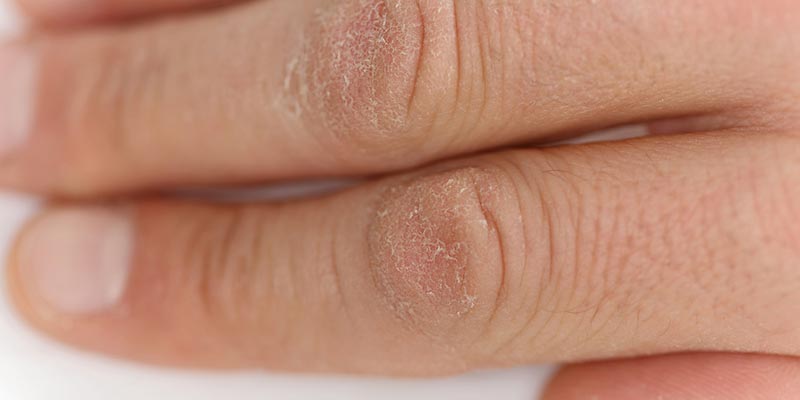Dry Skin Tips
Dry skin can occur in any climate or temperature. Dry skin types have impaired skin barriers and not enough sebum secretion to compensate for the impairment. Some skin types do well in the heat and humidity, but become dry in colder or less humid environments. All dry skin suffers from the same issue- increased water evaporation from the skin’s surface. This is known as transepidermal water loss (TEWL) and can be easily measured with a Tewameter.
What Causes Dry Skin?
Dry skin has an impaired skin barrier which means it is missing the important lipids (fats) that surround skin cells and keep water from evaporating from the skin’s surface. While lipids are providing a coating around the skin cells, another substance called NMF helps hold water inside the skin cells. Natural moisturizing factor (NMF) is a blend of amino acids found naturally inside of our skin cells. Dry skin has less NMF. Environmental factors such as sun exposure further decreases levels of NMF in skin.
Our body makes these protective lipids and produces NMF, but genetic defects and environmental effects can lead to decreased production of these vital components.
To give your skin a helping hand and get it back on track fast, consider the following tips to aid dry skin.
1. Choose the Correct Cleanser
Any type of skin can become dehydrated when the wrong cleanser is used. Foaming cleansers laden with detergent (as evidenced by excessive suds) will strip natural lipids form your skin leaving a ravaged skin barrier in its wake. Dry skin types should choose a creamy, milk, lotion or oil cleanser.
2. Choose Barrier Repair Moisturizer
Not all moisturizers are created equal. Dry skin types need moisturizers that have special technology to repair the skin’s protective lipid barrier. These are called barrier repair moisturizer. Many studies have shown that using a 1:1:1 ratio of cholesterol, fatty acids and ceramides will repair the barrier. Using a different ratio will further injure the skin’s barrier so it is essential that you use the proper formulation. Look for brands such as EpiCeram or Zerafite that use the proper barrier repair ingredients. MLE Technology is one such technology. Avoid moisturizers that use ratios such as 1:2:1 and 2:4:2 of these lipids. barrier repair moisturizer should be used consistently twice a day to help keep the skin’s lipid balance in check.
3. Improve Your Diet
Omega 3 fatty acids such as those found in salmon and other fatty fish may help hydrate skin. Drink enough water, especially if you are drinking dehydrating beverages such as coffee. Some studies have suggested Evening Primrose and Flax Seed Oil will help increase the skin’s natural protective fatty acids. (These did not help resolve eczema but may help mildly dry skin.)
3. Avoid Friction
Stay away from scrubs, microdermabrasion and vigourous facial massage. All of these injure the lipid barrier in your skin and lead to increased TEWL. Dry skin needs help exfoliating so choose a hydrating glycolic acid product or a PHA (polyhydroxyacid) instead. (Glycolic acid and gluconolactone a better choices for dry skin than Salicylic acid is.)
4. Rethink Your Bedding
Even the highest thread count cotton sheets can cause friction on dry skin.. Consider switching to silk pillowcases. They not only add a little luxury to your bedtime routine, but they’ll also help to keep your skin comfy as you catch up on your beauty sleep.
5. See a Dermatologist When Necessary
If extra protection and hydration don’t improve your dry skin, see your dermatologist. When dryness progresses to cracked or raw skin, your doctor can recommend over-the-counter or prescription products that can soothe, heal and help your skin look and feel beautiful.
Dr. Leslie Baumann, M.D. and her team at Baumann Cosmetic Dermatology believe in proof, not promises. World-recognized for both cosmetic and general dermatology, our treatment strategies rely exclusively on evidence-based, scientifically verified products and procedures that promote skin health and a natural appearance. We combine effective medical procedures with individualized instruction on proper skincare, nutrition, supplementation and lifestyle in order to maximize the health of the skin and body as a whole while minimizing the effects of aging. For more, visit Dr. Baumann’s blog for daily updates Monday through Friday, or inquire about an appointment through Derm.net.



